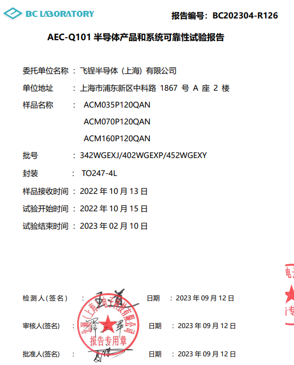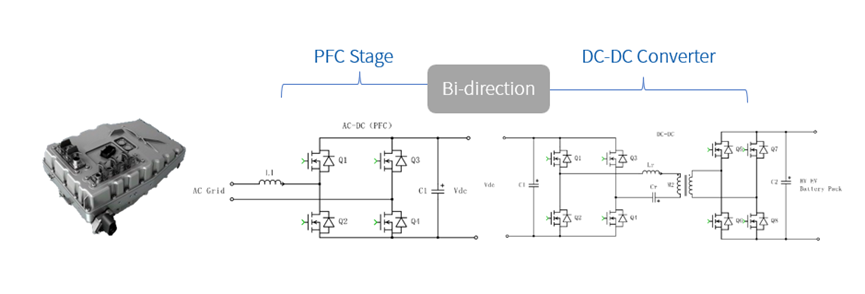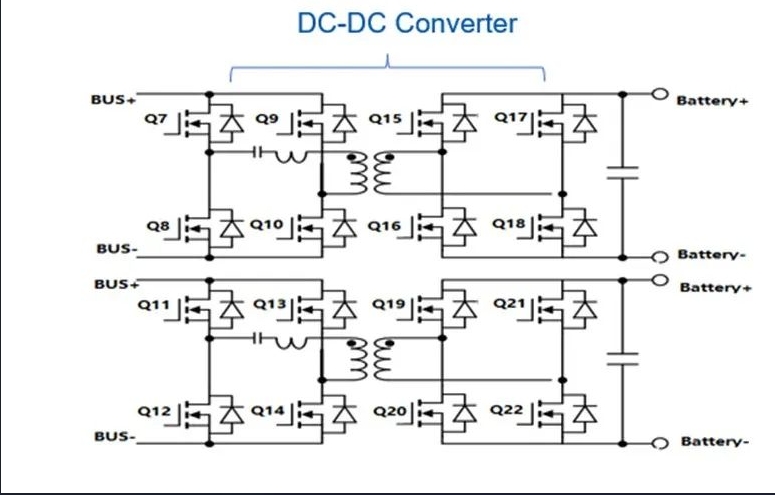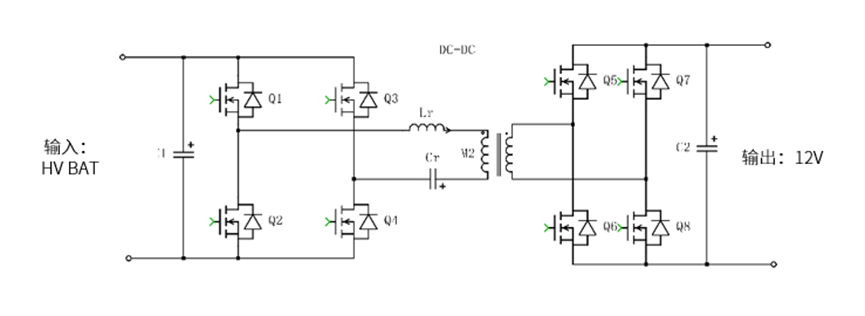APS SiC MOSFET obtained AEC-Q101 automotive certification
Recently, the 1200V 35/70/160mΩ and 650V 30/45/60mΩ automotive-grade SiC MOSFET devices independently developed by APS passed domestic third-party reliability certification, successfully obtaining AEC-Q101 automotive-grade reliability certification and passing the 960V high-voltage H3TRB stringent test. This certification fully affirmed the excellent performance of APS SiC MOSFET devices in terms of reliability and stability, making APS one of the few manufacturers in China that have passed dual assessments for SiC power discrete device products.

About AEC-Q101 Reliability Test Report
AEC-Q101 is one of the important certification standards for automotive components, and is a standard developed by the Automotive Electronics Council (AEC). AEC Q101 is a stress test qualification for discrete semiconductor components based on failure mechanisms. The standard aims to ensure the reliability and stability of automotive electronics products to meet the automotive industry's demand for high-quality and high-reliability products.
This time, APS automotive-grade SiC MOSFET device with a maximum withstand voltage rating of 1200V passed the automotive-grade AEC-Q101 reliability verification in the HV-H3TRB (high voltage, high temperature, high humidity reverse bias test) assessment standard. This means that more stringent requirements are placed on device design, manufacturing, and packaging technology. APS automotive-grade SiC MOSFET passed the HV-H3TRB reliability verification, indicating that the power device still has excellent endurance and longevity in extreme operating environments.
In terms of product structure, the second generation of automotive-grade SiC MOSFETs from APS continues to deliver superior performance compared to its predecessor. Through process optimization, the on-resistance per unit wafer area has been reduced, and the switching performance has been further optimized. In addition, the Kelvin Source package has been adopted to avoid the sharing of source lines between the drive circuit and the power circuit. This significantly improved the switching speed and anti-interference capability of the device, providing more possibilities for improving the switching frequency and system efficiency power density.
APS automotive-grade SiC MOSFET has the following characteristics:
High reliability and robustness
Complies with AEC-Q101 automotive certification and passes the HV-H3TRB enhanced test
Applicable to on-board OBC and on-board DCDC products
1200V automotive-grade SiC MOSFET uses 18V/20V gate drive voltage
650V automotive-grade SiC MOSFET uses a 15V gate drive voltage
APS has launched a series of application solutions for new energy vehicle OBC and on-board DCDC, which help new energy vehicles to improve acceleration, reduce system costs, increase endurance mileage, and achieve lightweight design.
Application 1: 6.6KW OBC

Recommended models of APS products suitable for this solution:
APS vehicle specification mass-produced products | |
| SiC MOSFET | ACM060F065QANC ACM045F065QANC ACM030F065QANC |
Application 2: 11KW OBC

Recommended models of APS products suitable for this solution:
APS vehicle specification mass-produced products | |
| SiC MOSFET | ACM035P120QAN ACM070P120QAN ACM035P120HAN ACM070P120HAN |
Application 3: 2~3KW vehicle DCDC

Recommended models of APS products suitable for this solution:
APS vehicle specification mass-produced products | |
| SiC MOSFET | ACM160P120QAN |
Currently, APS automotive-grade SiC MOSFET has been commercialized and mass produced, and significant breakthroughs have been made in cooperation with key customers in the new energy automotive industry, which will gradually lead to bulk supply. APS is also actively collaborating with other domestic downstream automotive companies to jointly promote the transformation of domestic new energy vehicles and the localization of SiC.
